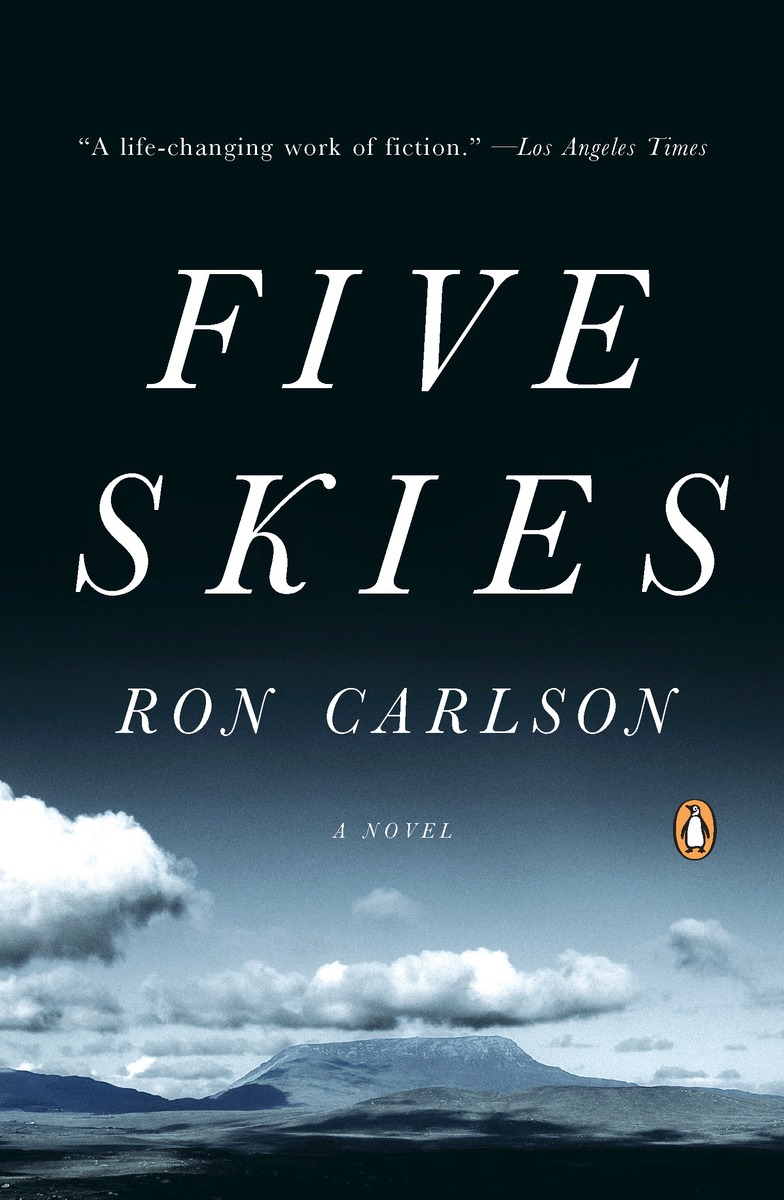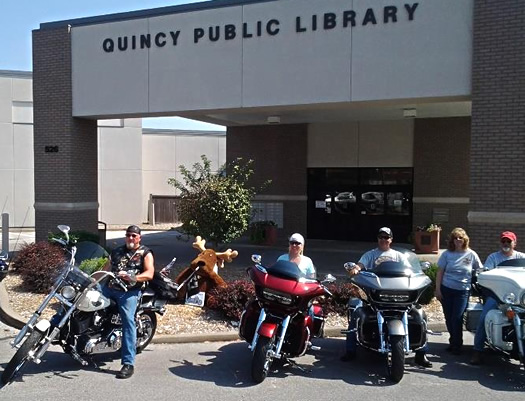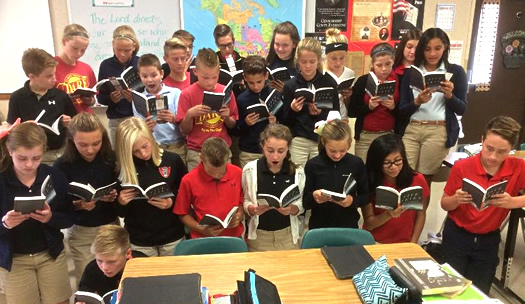Five Skies

Overview
Ron Carlson "is one of the best-kept secrets in American letters," writes Bookmarks. "He's considered one of the best stylists working today, his name uttered along with those of Wallace Stegner, Thomas McGuane, Jim Harrison, Kent Haruf, and other writers who explore the terrain and unique spirit of the American West." A recipient of a National Endowment for the Arts creative writing fellowship and "master of the short story" (Booklist), his distinguished oeuvre includes five collections of short stories, six novels, two poetry collections, one work of nonfiction, and appearances in many "Best Of" anthologies. Five Skies is the story of three men working a doomed construction project in the Rocky Mountains of Idaho. "In such traditionally masculine genres as private eye mysteries, techno-thrillers ... and 'hard' science fiction, there is one common theme: Men at Work," writes Carlson fan Michael Dirda in The Washington Post. "If one invests any work—building a ramp or writing a novel—with sufficient attention, care and reverence, the result can be a kind of prayer." Writes Entertainment Weekly: "Ron Carlson's beautifully crafted and emotionally wrenching novel about nonverbal but deep-feeling males in flyover country is more refreshing than an ice-cold Coors."
"Everything he'd put together for weeks was now loose in his heart and the pieces were sharp." —from Five Skies
Overview
Ron Carlson "is one of the best-kept secrets in American letters," writes Bookmarks. "He's considered one of the best stylists working today, his name uttered along with those of Wallace Stegner, Thomas McGuane, Jim Harrison, Kent Haruf, and other writers who explore the terrain and unique spirit of the American West." A recipient of a National Endowment for the Arts creative writing fellowship and "master of the short story" (Booklist), his distinguished oeuvre includes five collections of short stories, six novels, two poetry collections, one work of nonfiction, and appearances in many "Best Of" anthologies. Five Skies is the story of three men working a doomed construction project in the Rocky Mountains of Idaho. "In such traditionally masculine genres as private eye mysteries, techno-thrillers ... and 'hard' science fiction, there is one common theme: Men at Work," writes Carlson fan Michael Dirda in The Washington Post. "If one invests any work—building a ramp or writing a novel—with sufficient attention, care and reverence, the result can be a kind of prayer." Writes Entertainment Weekly: "Ron Carlson's beautifully crafted and emotionally wrenching novel about nonverbal but deep-feeling males in flyover country is more refreshing than an ice-cold Coors."
Introduction to the Book
"Regardless of how tech savvy we are, we are from a place and we live in a place. I've always used place or setting to find my stories." — Ron Carlson in superstition [review]
In the mountain desert plains of southern Idaho, a ranch foreman hires two drifters—a Hollywood stunt engineer and a 19-year-old runaway—to set up camp and spend a summer constructing a motorcycle ramp and spectator bleachers for a publicity stunt to launch a female daredevil across a deep river gorge. The three strangers are buoyed by hard work done well and, though they don't talk much, slowly begin to share past wounds and deep-felt regrets that haunt their days and nights. A sense of omnipresent foreboding runs through the narrative of Ron Carlson's novel Five Skies and its austere, isolated landscape. "Against our transient human sorrows Carlson subtly juxtaposes the ongoing natural world — the skies of Idaho, the steep gorge with the rushing river at its bottom, the dark starry nights, the omnipresence of death, when rabbits scream as a hawk strikes" (The Washington Post).
To build the ramp, the three men clear brush from the site, dig holes for posts, smooth asphalt for the runway and construct a fence along the canyon's edge. They wake early each morning to the smell of fresh coffee and a hearty breakfast sizzling on the grill. In his mid-60s and the former foreman of the nearby Rio Difficulto ranch, Darwin Gallegos is managing this job at the request of his former employer, Biff, and does all the cooking. When they need materials, the men drive their flatbed truck into Mercy, the nearest town, where—not long after the job began—they had to take Ronnie Panelli, the young kid, to attend to a bad injury to his shoulder. Mercy is home to Traci, the girl Ronnie takes a shine to, and her violent ex-boyfriend who sees Ronnie as a threat. Arthur Key, a large, strong, well-respected engineer taking a break from his life back in California, fills out the third part of the trio. He looks after Ronnie like an older brother. "The men do what they have to do, up against the real facts of the place and the day," Carlson told New West. "I wanted their reactions and interactions to be what men might do, not what characters serving a story might do."
Arthur wishes they were building a bridge instead of a ramp for what seems to him like a jump doomed to fail. With a reputation for dependable and safe structures to support film stunts, he's been known to walk away from a job when he thought the project might jeopardize lives. He's burdened with a deep guilt at failing to look after his younger brother who recklessly signed up to do a film stunt and died on the set. "I wanted [Arthur] to be a consummate craftsman/engineer who could deal with any broken thing in the real world, but I also knew he would be locked up, first as a man, and then by his past," Carlson told New West. "He can read a blueprint, but his heart is trickier, more coded, and he's learned not to trust it."
Darwin, who's managing the ramp project and has lived in the area for years, is coping with his own despair. He recently lost his longtime, beloved wife to a small plane accident and is plagued with a simmering anger and spiritual emptiness. "He doesn't wish to be healed, but long days of physical labor help him, as they do Arthur" (The Washington Post). "Oddly enough in literature: work is exotic," said Carlson. "We don't have much of it in song or story" (Juked).
In many ways, it is the teenager, Ronnie, who gives the other two men hope as they take him under their wing. A former petty thief, Ronnie fills them with pride as he learns how to operate the machinery and use the tools and becomes a fine carpenter, all the while learning to believe in himself and show restraint. "I wanted these to be simple men, each hauling his life forward as well as he could," says Carlson. "They have been reduced by their histories, and they are weary or incapable of subterfuge. Sometimes, all you've got is the day, and I tried to use the days of their time together to test them, to see how they might emerge" (Penguin). "Five Skies is like one of those heartbreaking Raymond Carver stories in which a luckless character catches a glimpse of something better, a small moment of rightness about the world, and, instead of cheering us, this glimmer of hope makes us even more anxious—because we know it can't possibly last" (The New York Times).
- Why has Ron Carlson titled the novel Five Skies? Why does Arthur Key tell Harry, when he asks what it’s like in Idaho, “There’s five skies, Harry. . . . There’s five skies every day”?
- SPOILER ALERT: At the beginning of the job, Arthur tells Darwin that the plans “are wrong from top to bottom. But it doesn’t matter, does it? I mean, somebody’s going to get killed out here. . . . Right here. That’s all this means.” Why does Key feel so strongly that someone will be killed here? Is Ronnie’s death in some sense fated? Is his death sacrificial?
- When Key tells Ronnie “We’ll have a little supper here and then find [Traci] so you can give her your note, and we’ll go back to camp and work another week,” the narrator comments that “the sentence sounded like good work itself, sane and filled with promise.” What is it about “good work,” a job done right, that is so satisfying in the novel? In what ways is work “sane and full of promise” for Ronnie, Darwin, and Key? What does it give them? In what ways is the novel itself both a story about and an embodiment of “good work”?
- Why is it so difficult for Arthur to tell his story? Why does he feel “simplified and quiet” after he finally does tell it to Darwin?
- How do each of the main characters—Key, Darwin, and Ronnie—change over the course of the novel? In what subtle ways do they help one another?
- Why do Key, Darwin, and Ronnie find it so difficult to talk about the pain in their pasts? What do they fear? How is each of them transformed when they are able to talk about their pasts?
- SPOILER ALERT: After Key burns down the ramp that they’ve spent all summer building, Darwin asks him, “What did you do?” Key replies: “Woke up.” What does he mean by this? What kind of awakening has he experienced? In what sense was he asleep, or dreaming, before this moment? How are we to understand Key’s waking in relation to Darwin’s statement, farther down the same page, that Ronnie “didn’t wake up”?
- Does Arthur Key attain a kind of redemption at the end of the novel? Has he forgiven himself for his brother’s death and his own adultery?
- SPOILER ALERT: When the promoters say that the jump will happen “barring an act of God,” Key says, “He doesn’t act out here. It’s just us.” Yet when he burns down the stunt ramp, Key thinks to himself that “this was already an act of God, regardless of the weather.” How are we to understand these two statements? How do Darwin and Key feel about God?
- What does Five Skies as a whole suggest about the relationship among grief, memory, work, talk, and friendship?
Five Skies discussion questions provided with permission of Penguin Random House.
The Quincy Public Library broadens their audience with Five Skies in Quincy, IL
“Programs for children included story times; a craft project; a big trucks display; and a wildlife management lesson that included fish, crawdads, and turtles to view. Teen events included campfire cooking; a western roundup; and a book discussion group. Adult events included four movies; a Skype talk with Five Skies author Ron Carlson; book discussion groups; a presentation by the Department of Natural Resources about a nearby national wildlife area; an art exhibit; and a presentation by the local Harley Owners Group.”

|
“Every student in Pre-K through 3rd grade was invited to participate in Big Read activities and several schools hosted Big Read events involving their students. Quincy Art Center’s exhibition and art fair drew in hundreds of families to view and participate with Big Read activities… The Illinois Department of Natural Resources participated in the kick-off event and in the wildlife management lesson, and people were very interested in the fish and fishing pointers provided at both events. The movie series for adults was popular, providing insight into different aspects of the Five Skies theme.”

|
– from a final report by Quincy Public Library, an NEA Big Read grant recipient in FY 2016-17.

